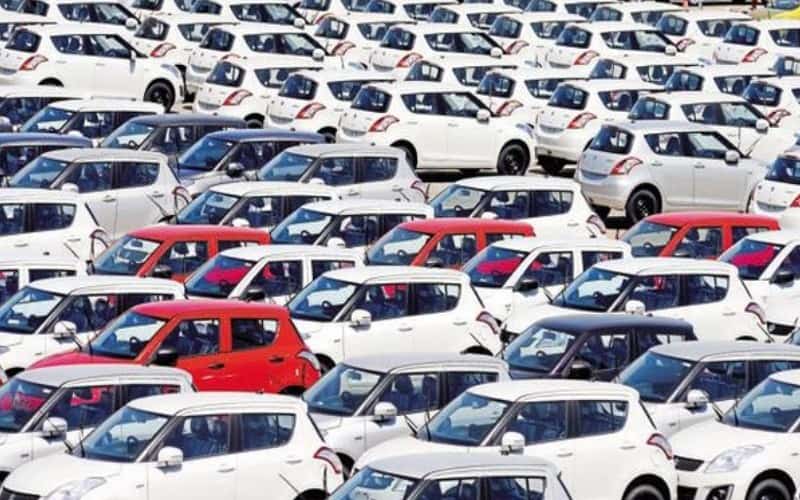New Delhi: The automobile industry on Tuesday sought revival measures amidst the data showing 18.71 per cent decline in off-take in July, recording the highest monthly sales de-growth in the last 19 years.
According to industry observers, high cost due to the goods and services tax (GST) and lack of adequate liquidity are the main reasons for sales decline.
The Society of Indian Automobile Manufacturers (SIAM) data showed sales in July declined by 18.71 per cent to 18,25,148 units from 22,45,223 units sold in the year-ago month.
“We hope the government would soon come out with a revival package to arrest the de-growth and bring the industry back to a growth path,” SIAM Director General Vishnu Mathur said. “We are hoping the Finance Minister will issue some kind of measures to bring the industry back on the track,” he said.
Last week, automobile sector representatives met Finance Minister Nirmala Sitharaman to apprise her of the situation and proposed reduction in GST rates, scrappage policy and resolution of the liquidity and the non-banking finance company (NBFC) crisis.
The collapse of some large NBFCs has been cited as a factor for sales downturn as they used to provide the bulk of automobile financing.
According to data, passenger cars sales plunged by 35.95 per cent to 122,956 units against 191,979 units sold in July 2018. The utility vehicles’ sale declined by 15.22 per cent to 67,030 units against 10,804 vans sold last month. It went down 45.68 per cent against the year-ago month.
Overall, passenger vehicle sales declined 30.98 per cent in July to 2,00,790 units against 2,90,931 units in the year-ago month. In the commercial vehicle segment, sales were down by 25.71 per cent to 56,866 units.
The sale of three-wheelers declined by 7.66 per cent to 55,719 units in July. In case of two-wheelers, which include scooters, motorcycles and mopeds, the sale edged lower by 16.82 per cent to 15,11,692 units.
However, exports across categories were higher by 4.22 per cent to 4,14,596 units.
The sales decline had dented production, causing job losses. The domestic passenger car production has fallen by 20.08 per cent to 2,05,194 units from 2,56,760 units.
Similarly, the commercial vehicle production has comde down by 26.44 per cent to 66,943 units. The two-wheeler production has edged lower by 9.56 per cent to 20,35,056 units.
The automobile production declined by 11 per cent in July to 25,08,860 units across segments and categories.
“July 2019 has been one of the worst months for passenger vehicles, which reported its first YoY de-growth in December 2018 for passenger cars and has gone on decline for the straight eighth month now and the lowest since last 4 years or so,” Grant Thornton India LLP Partner Sridhar V told IANS.
According to Rahul Mishra, Principal, A.T. Kearney, while the broader sentiment and factors remain same, the impact on retail (secondary) sales may also be impacted due to rain/floods in some states and people postponing their purchase to festive season.
“The de-growth in production would be less pronounced in coming months as production will increase to fill the dealership with stock for festive season,” Mishra said.

